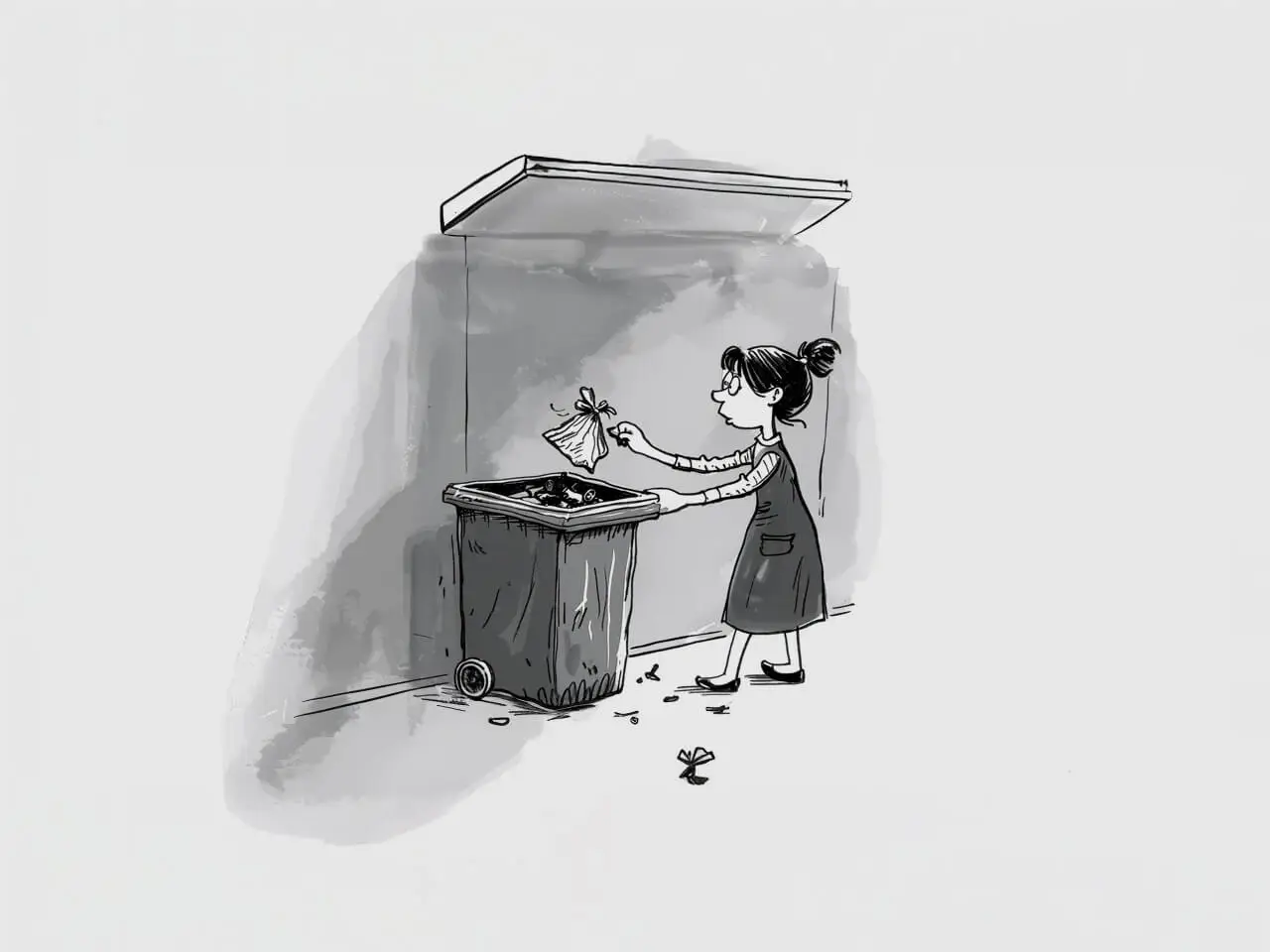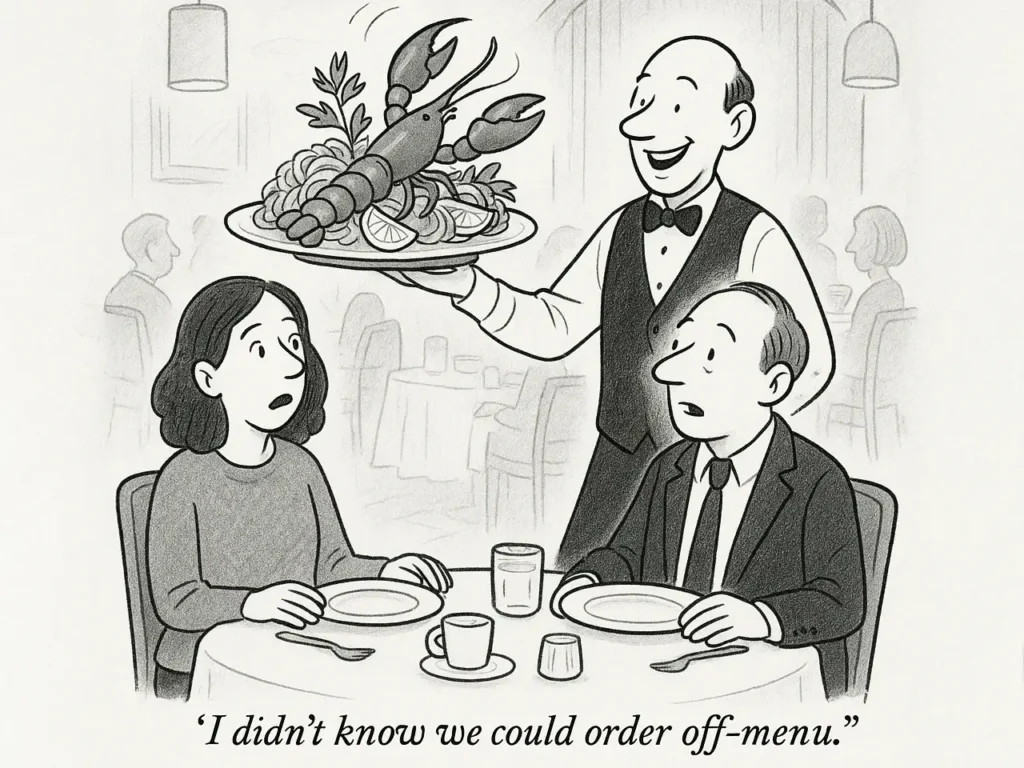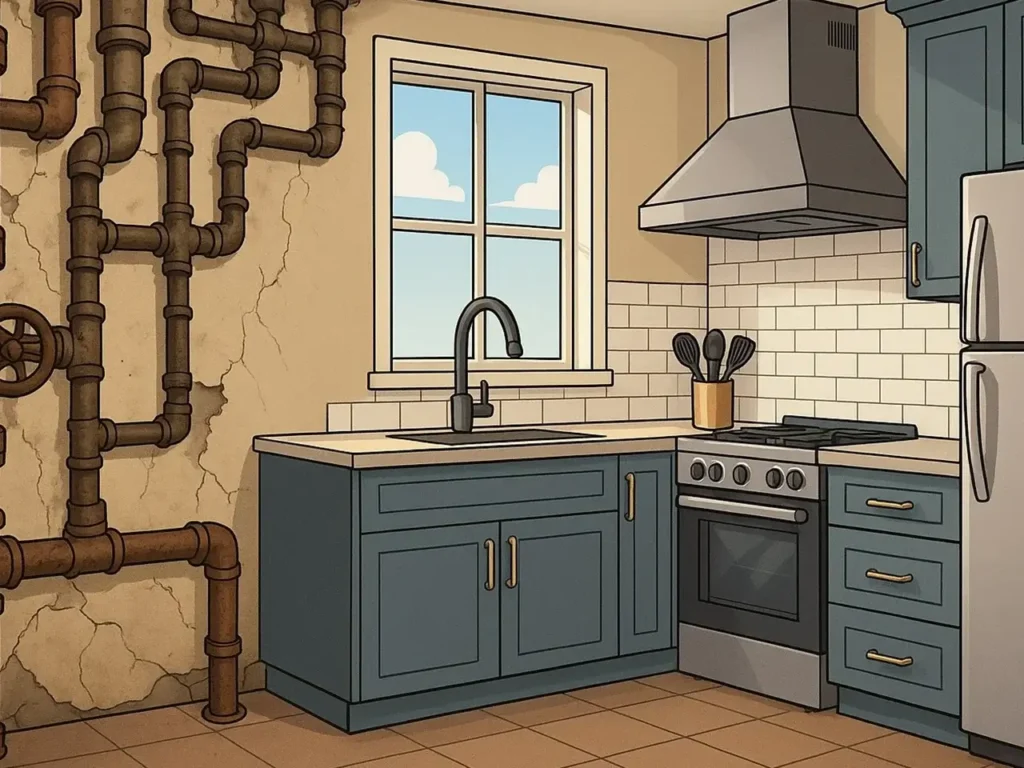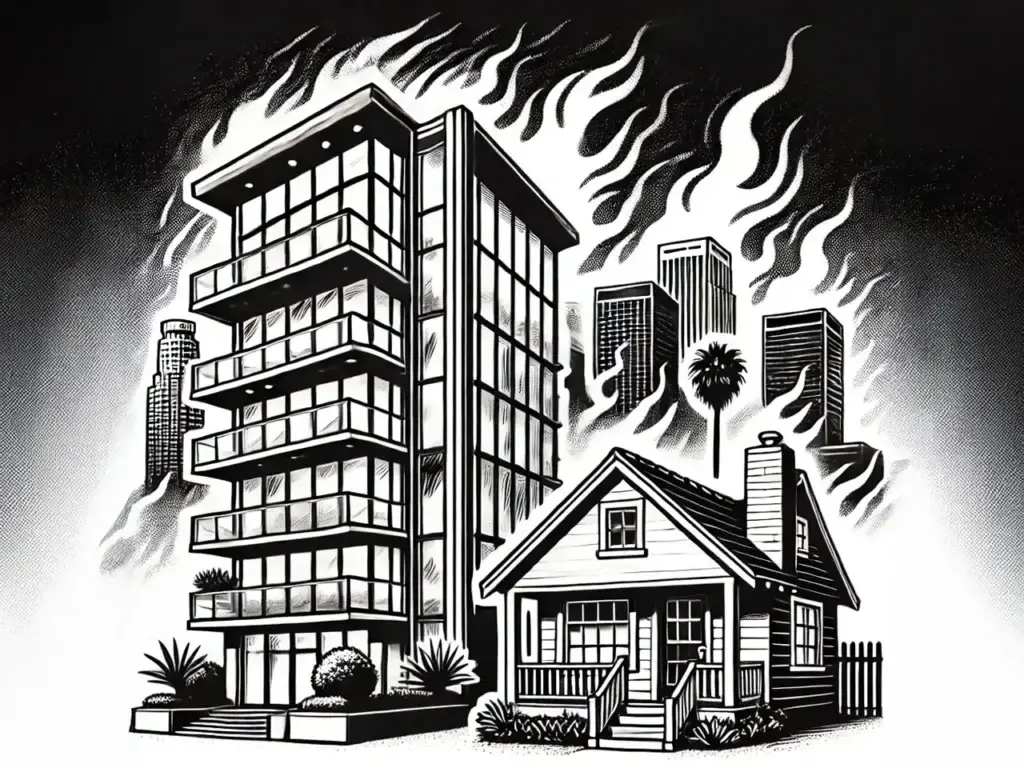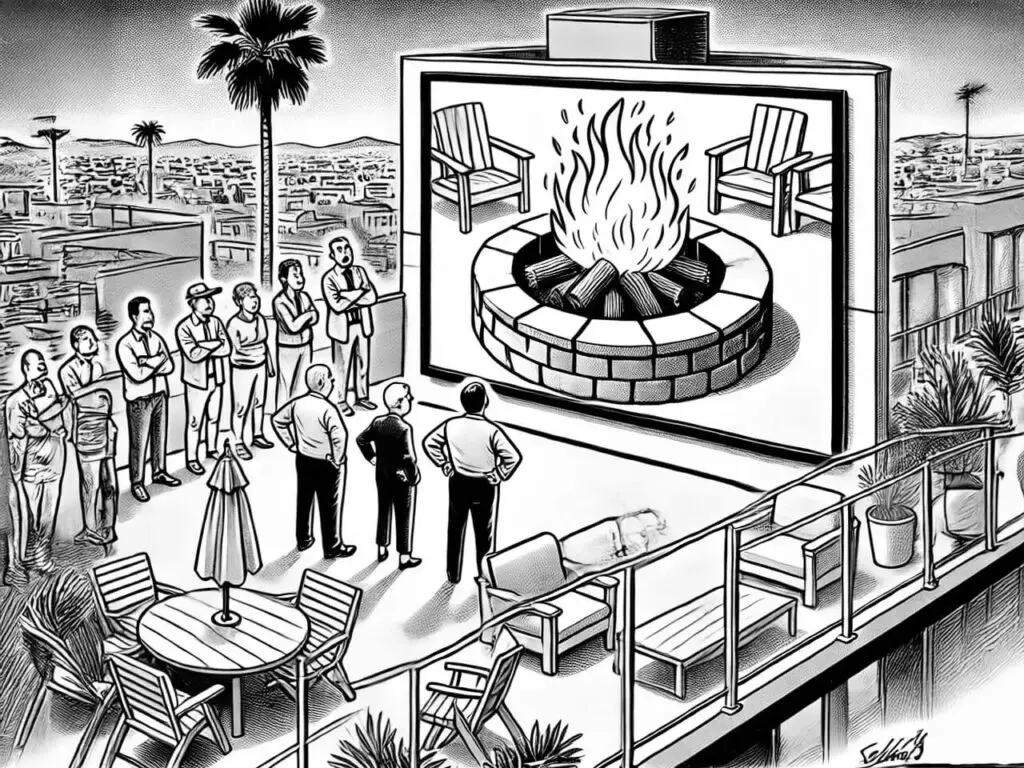In an exercise of magical thinking, I ignored mandatory organics recycling as long as possible. Time’s up.
Organics waste—food scraps and yard clippings—is estimated to emit 20% of California’s methane, a climate super pollutant. SB 1383 is intended to keep organics waste out of landfills by requiring everyone, both businesses and residential, to participate in an organics recycling program.
Worthy goals, sure. But what a smelly, sticky mess this promised to be.
Our building has chutes on each floor that deliver trash into a black bin in the trash room.
Residents already carry recycling material down to the blue bin in the trash room.
With this new law, residents need to separate organics from trash and carry their kitchen scraps down, through the elevator and lobby, to empty it into a big green organics bin.
How were we going to make this work?
Enforcement Begins
The Official Notice from the City of Los Angeles told us our recycLA service provider (RSP, in Official Notice speak) had ratted us out. We were non-compliant with the State of California requirement to have collection services for “source-separated organic waste.”
Under these new regulations, we are required to subscribe to an organics collection service and to separate all green waste, food scraps and “100% fiber-based food-soiled paper” like pizza boxes and dirty napkins into our green organics bin.
Beginning January 1, 2024, the Official Notice warned, we could be subject to a fine of up to $250 per violation.
Athens Services, our RSP, sent a representative to our building to explain the details.
The representative said that Athens strongly prefers that all organics (other than landscaping clippings) be placed in the green bin in a clear plastic bag. Her words. Strongly prefers.
What It Will Cost
For the privilege of us separating our organics from our other trash and depositing them into a green bin, our 26-unit building will be required to pay $130 per month for once-a-week organics pick-up. If we put the green bin in our trash room, there will be an additional $155 per month “distance fee,” similar to what we were already paying for trash pick-up. If instead we opted to place the green bin in the garage close to the garage door, there would be only a $62 “access fee.”
We could leave the green bin on the street if we didn’t want to pay any access or distance fee, but then it would probably need to be locked, and all of our residents would need to carry a key to be able to dump their organics.
This was on top of what we were already paying Athens for trash collection. That fee, the representative said, is going up 5% in 2024. Even though the volume of trash, presumably would be going down now that organics would be out of the mix.
We had just passed a budget that included none of this. More magical thinking.
How It Works
The RSP rep handed out colorful, laminated visual materials showing what goes in which bin and offered to deliver personal counter-sized pails.
According to another handout, you can fill your personal counter-sized pail with food scraps and other acceptable items. To prevent odor, the handout said, you can keep your pail in your freezer.
(Note: I have never, ever, had room in my freezer for anything the size of a pail of food scraps. If I did, I would promptly fill it with another carton of ice cream.)
Residents then periodically empty the small pails into the condo-sized green bins. The photo of a green bin on the laminated sheets show it filled with beautifully fresh produce that look like a giant salad. There were no chicken bones, leftover take-out food or other dinner scraps in the green bin in the photo, although those things are supposed to be in the green bin.
After you empty your personal pail into the condo’s large green organics bin, the small pail needs to be rinsed with soap and water, the sheet instructs. “Fill again. Sprinkle lightly with baking soda to absorb odors.”
Presumably, the same would apply to our condo-sized green bin, except it absolutely would not fit in a freezer, with or without ice cream. It would sit there for a week between collections. And our janitor would have to wash it out…if he could coordinate his on-site visits to the moment when our RSP had just emptied the green bin.
This was all sounding pretty grim.
The Less-Mess Trick
Then we learned something from our Athens rep that you won’t find on any of the beautiful laminated sheets or the on-line tutorials.
The official statement in the handouts and on-line is that clear plastic bags are permitted as liners for the small pails, as are paper bags or newspapers.
The representative said that Athens strongly prefers that all organics (other than landscaping clippings) be placed in the green bin in a clear plastic bag.
The HOA can require homeowners to put all their food scraps in sealed, clear plastic bags without the slightest guilt because this is what our RSP strongly prefers.
Her words. Strongly prefers.
So the HOA can require homeowners to put all their food scraps in sealed, clear plastic bags without the slightest guilt because this is what our RSP strongly prefers.
Any clear plastic bag will do. Used Ziplocs. Produce bags from the grocery store. Trash can liners you can buy in bulk.
The bags need to be see-through enough that workers can verify that the contents are organics, but the bags do not need to be compostable. According to our rep and the on-line video, when the stuff gets to the facility, workers rip open the plastic bags, “liberate” the contents and throw the bags away.
The plan
We will need to educate everyone about what does and doesn’t belong in the green bin. (FYI, pet waste absolutely does not go in the green bin. According to our RSP rep, it contaminates the whole batch. Ditto for diapers.)
The green bin—covered but not locked—will sit inside the garage near the entrance. For the combined organics fee and access fee, Athens will charge us almost $200 a month for once-a-week organics pick-up.
Residents will carry their food scraps down in sealed plastic bags and deposit it in the green bin, which will be collected once a week. Hopefully the plastic bags will drastically reduce spills in the elevator and lobby, odors in the garage, and the frequency with which the condo’s large green bin needs to be cleaned.
Yard trash does not need to be bagged but can go directly into the green bin.
We will monitor how quickly our residents adapt to the system. If residents use the green bin a lot, we can increase organics collection to twice a week and reduce trash collection to once a week. This would save a little money, as our RSP charges less for organics collection than it does for trash collection.
Eventually we will consider whether to repurpose our trash chutes on each residential floor for organics collection, allowing residents to easily and frequently discard their bagged food scraps, without a trip to the garage. Trash would then have to be carried downstairs but presumably it won’t be as messy without food scraps and it won’t need to be discarded as often.
Final Thoughts, For Now
As with electric vehicle charging, the State of California mandates that condominiums comply with a statute that has a worthy goal but adds burdensome, expensive requirements for condominium associations to figure out.
And once again, the key to making it work lies in asking a lot of questions and not relying on the official stuff online. Or glossy printed material.
If your RSP is Athens, feel free to bag your organics in clear plastic bags guilt-free. You might as well require that all owners do the same in the name of building sanitation. Whatever you may think about Athen’s methods, it’s the way they prefer it.
If you have an RSP other than Athens, ask how they feel about plastic bags.
Our HOA is just getting started. Organics recycling will be a work in progress, and we will make changes to the system as we go along. We will learn a lot, and CondoWonk will fill you in.
Meanwhile, if you have advice or experience to share, please let CondoWonk know.

